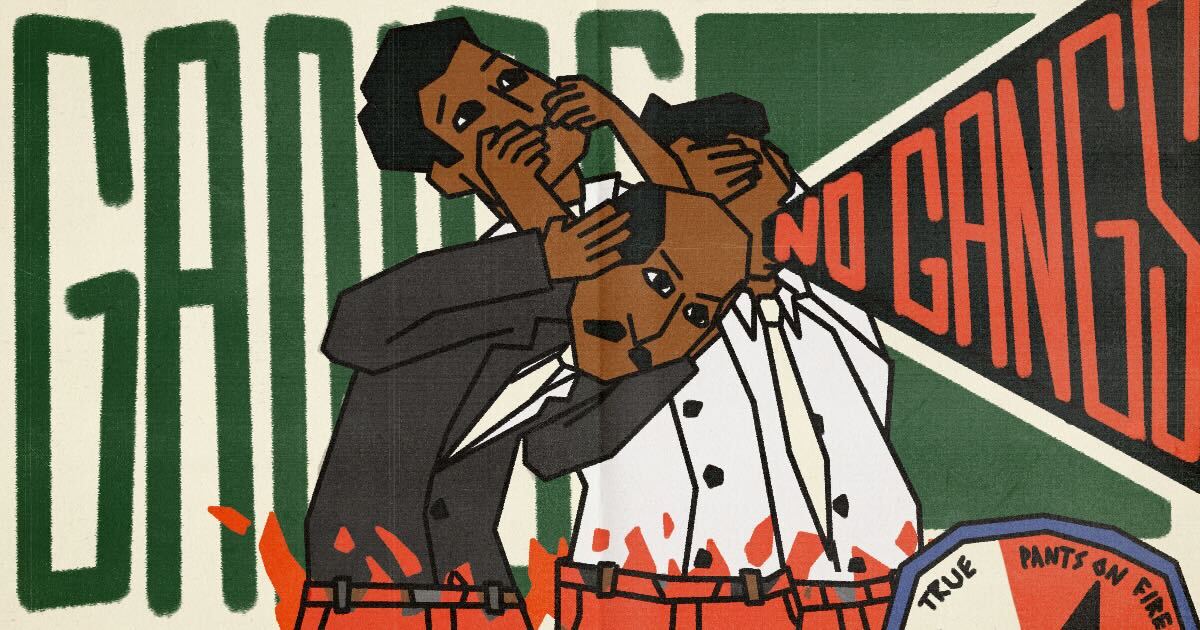
16 Feb 2025, 11:00
There are no gangs in the Maldives and the streets are paved with cheese. Okay, we made that last part up (shout out to 90s kids who got the reference). But the first was an assertion made by lawmakers from the ruling People’s National Congress. It’s patently false, we know, but let’s break it down.
TLDR
Two PNC MPs criticised a new gang crimes bill and claimed that gangs do not operate in the Maldives.
The remarks came during preliminary debate on the legislation last Wednesday.
What did they say?
“The first concern I have about this is that the title of the bill says ‘preventing gang crimes’. I do not believe that there are gangs in the Maldives.I also noticed that this bill also doesn’t have anything about gangs.The title says gangs and everywhere else, the bill is about organized crime groups,” said Abdulla Rifau, MP for South Maafannu.
“I would say my constituency in Maafannu has one of the worst crime rates and more youth are getting involved in crimes. However, I don’t think there are gangs in the Maldives – in the definition it is used in the world. I can’t truly believe that, in this context, gangs operate in the Maldives.This is not happening in the Maldives,” said Mohamed Musthafa Ibrahim, MP for West Maafannu.
What’s in the bill?
Sweeping powers for police and prosecutors in investigating and raising charges over organised crime. if passed, it will replace the 2010 Gang Crimes Prevention Act and a 2010 law that criminalised threats and the use of sharp instruments and weapons.
The proposed law will broaden policing powers and allow harsher treatment during the investigation stage for individuals designated as gang members, including denial of legal representation for 48 hours, and arrests as well as searches and seizures without a warrant. It prescribes fines of up to MVR 100 million (US$ 6.5 million) in addition to lengthier prison sentences.
What is a gang anyway?
The definition of a gang is “an organised group of criminals.”
Are there any in the Maldives?
Gangs operating in the Maldives are responsible for violent crimes, including murder, illicit drug trafficking and other serious organised crime, according to the police.
Is gang violence an ongoing concern?
Yes. Most recently, a man was assaulted with a hammer outside IGMH on February 4. The prime suspect, 31-year-old Hussain Areesh, fled to Malaysia last week. But he was denied entry after the police informed Malaysian authorities of an arrest warrant. Upon his return on Thursday morning, Areesh was arrested at the Velana International Airport. At his subsequent remand hearing, police told the court that he was the leader of a gang operating in the Maafannu ward of Malé with 26 prior arrests.
According to media reports, the hammer attack was part of a new cycle of violence between rival gangs in the capital.
What have the police said in the past?
In July 2024, a senior police officer highlighted the state of gang crime in the Malé region after a special unit was set up to curb gang violence.
Eight gangs were under surveillance and police needed to be constantly vigilant to forestall gang fights, Superintendent Ali Arif said. “We got to keep an eye on them in their territory,” he said.
Former home ministers and police chiefs have also spoken about the impact of gang violence. In 2014, a police chief inspector said a spate of violent assaults in Malé were gang reprisals. The same year, a Maldives Broadcasting Commission survey found that gangs were one of the top sources of threats against journalists.
In 2016, a former home minister was placed under police protection after threats from a gang.
Got any numbers?
During the first eight months of 2024, the police searched over 87,775 properties, 173 vehicles and arrested 67 individuals linked to gang crimes.
In 2022, during the former administration, police chief Mohamed Hameed said 31 gangs with a membership of 700 identified individuals operated in the southern atolls of the country.
In a presentation at a local governance forum, Hameed said 44 active gangs had been identified in Malé, out of which nine were declared to be extremely dangerous. The police had identified 2,800 individuals linked with the gangs, he said.
Any official reports out there?
A rapid situation assessment of gangs in Malé was conducted in 2012 by the San Francisco-based Asia Foundation explained the transactional relationship between gangs and politicians.
“Many gangs receive income through exchanges with political actors or business people and only a minority of gangs refuse to accept money in this way. The exchange is usually in the form of money, or sometimes alcohol, given to gangs to participate in political protests, start political riots, destroy property or injure a third party. Money is often given to a gang to initiate a fight so as to divert media attention from a political issue,” the study found.
Discussion
No comments yet. Be the first to share your thoughts!
No comments yet. Be the first to join the conversation!
Join the Conversation
Sign in to share your thoughts under an alias and take part in the discussion. Independent journalism thrives on open, respectful debate — your voice matters.




